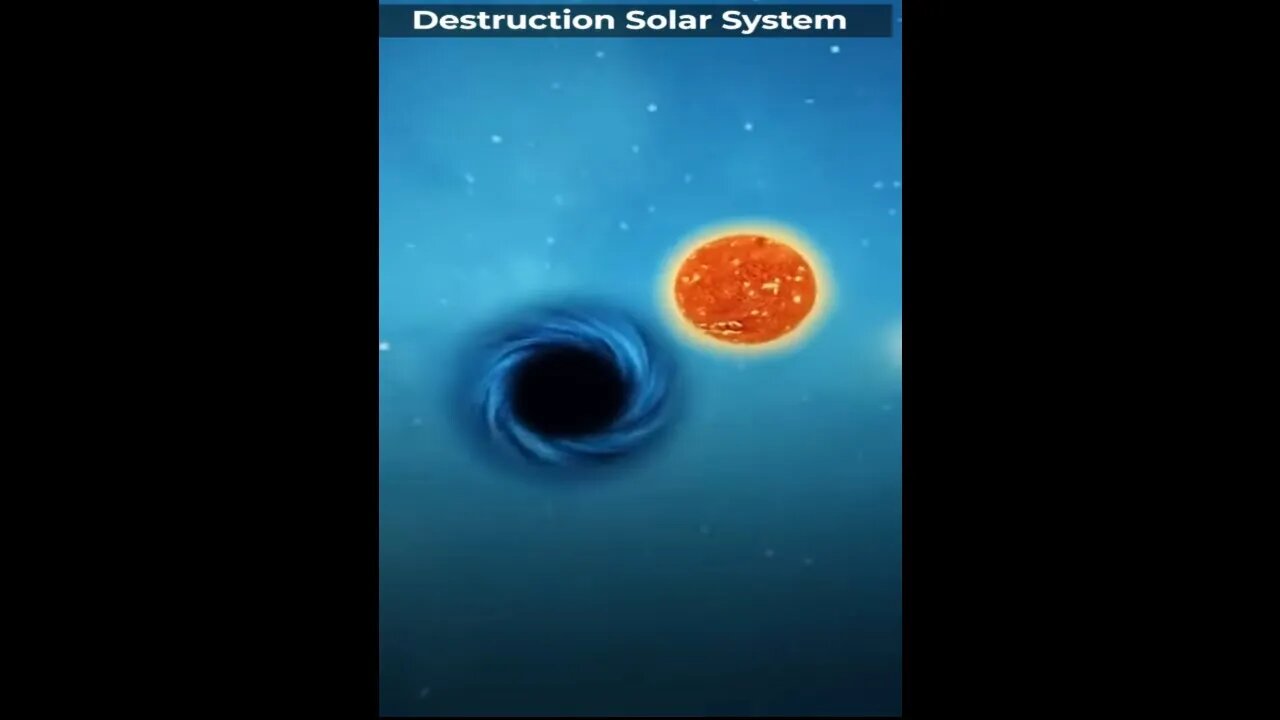Premium Only Content

How a Blackhole Destroy Our Solar System?
A black hole has the potential to significantly disrupt or destroy a solar system, including our own, if it were to come into close proximity. Here's a hypothetical scenario of how a black hole could affect our solar system:
Gravitational Disturbance: As a black hole approaches our solar system, its immense gravitational pull would start to disrupt the orbits of the planets. The black hole's gravity would exert a much stronger force compared to the Sun, causing planets to deviate from their regular paths.
Altered Orbits: The gravitational disruption would lead to drastic changes in the orbits of the planets. Their paths would become highly elliptical or completely destabilized, leading to collisions between planets or their expulsion from the solar system altogether.
Tidal Forces: As the black hole gets closer, the tidal forces it generates would intensify. Tidal forces are the result of the difference in gravitational pull between the near and far sides of an object. These forces could cause immense tidal heating and deformation on planets, leading to violent geological activity, volcanic eruptions, and eventually the destruction of the planet's structure.
Accretion Disk Formation: If a black hole were to pass close enough to our Sun, it could strip away some of its outer layers, creating an accretion disk of matter swirling around the black hole. This process would drastically reduce the Sun's mass and energy output, leading to a significant disruption in the stability of our solar system.
Gravitational Capture: In the worst-case scenario, if a black hole were to directly collide with the Sun, it could result in the black hole capturing the majority of the Sun's mass. This would cause the black hole's mass to increase, while the Sun would cease to exist. The destruction of the central star would disrupt the gravitational balance of the solar system, resulting in catastrophic consequences for the remaining planets and other celestial bodies.
It's important to note that the above scenario is highly hypothetical, as our current understanding of black holes suggests that they are typically formed from the collapse of massive stars, located at great distances from our solar system. The chances of a black hole directly approaching and disrupting our solar system are extremely remote.
-
 2:15:40
2:15:40
Side Scrollers Podcast
19 hours agoWTF Happened to Call of Duty?! + Ubisoft’s MAJOR F Up + Vtuber HIT LIST + More | Side Scrollers
60.1K14 -
 18:31
18:31
Nikko Ortiz
15 hours agoKaren You Need A Shower...
8.86K12 -
 9:47
9:47
MattMorseTV
16 hours ago $13.64 earnedDemocrats CAUGHT in $15,000,000 LIE.
19K31 -
 43:24
43:24
ThisIsDeLaCruz
18 hours ago $1.04 earnedWhat Fans Never Knew About Falling In Reverse’s Guitarist
6.88K -
 24:53
24:53
GritsGG
15 hours agoInsane 3998 Warzone Wins! Rank 1 Player Keeps 36 Win Streak!
8.99K -
 LIVE
LIVE
Lofi Girl
3 years agolofi hip hop radio 📚 - beats to relax/study to
267 watching -
 55:46
55:46
PandaSub2000
14 hours agoBeyond Good & Evil | ULTRA BEST AT GAMES (HD Edited Replay)
25.1K2 -
 3:11:36
3:11:36
FreshandFit
12 hours agoAlex Stein & Madison Cawthorn With Miami Latinas
210K78 -
 2:00:32
2:00:32
Badlands Media
16 hours agoOnlyLands Ep. 31: The Post-GART Hangover Show
82.8K37 -
 6:28:51
6:28:51
The Rabble Wrangler
15 hours agoBattlefield "Deputy Games" with The Best in the West!
44.3K